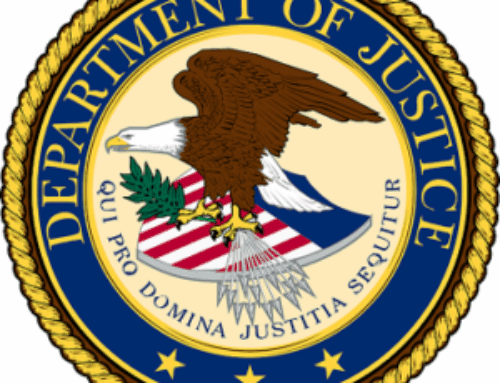As was evident from our recent posts on the 2024 Top 10 False Claims Act Recoveries and Top 10 False Claims Act Recoveries In Healthcare, the majority of False Claims Act recoveries routinely involve healthcare fraud. In fact, since 1986 — when the statute was amended to significantly increase the incentives and protections of whistleblowers — roughly 70% of the recoveries ($54 billion out of $78 billion) of the total recoveries involved fraud against Medicare/Medicaid and other government healthcare programs.
But the False Claims Act is not just about healthcare fraud. Indeed, that statute was enacted during the Civil War to go after war profiteers attempting to defraud the Union Army with lame mules and faulty munitions. And government contracting fraud outside the healthcare context remains a primary focus of the government’s fraud enforcement efforts. This year was no exception with DOJ, in its recently released 2024 False Claims Act roundup, pointing to several priority enforcement areas outside healthcare including military procurement fraud, pandemic fraud, and cybersecurity fraud.
Below we have listed the Top-10 False Claims Act recoveries for 2024 outside healthcare. Two of the top three recoveries involved military contract fraud. The Number 2 recovery involved pandemic fraud. And the rest involved various forms of fraud in securing or performing government contracts, or in complying with government funding requirements or payment obligations.
Whistleblowers originated 8 of the Top-10 non-healthcare recoveries, which is consistent with the dominant role whistleblowers have played in enforcing the False Claims Act since 1986. During this period, roughly 70% of the government’s recoveries under the statute ($55 billion out of $78 billion) have come from matters originated by whistleblowers. Whistleblowers have collectively received roughly $9.5 billion in awards for their efforts.
Finally, Constantine Cannon is pleased to note it represented the whistleblower in one of the matters in the Top-10 listing (No. 6), helping him secure the largest reported settlement under the Illinois False Claims Act. As noted in our Top-10 healthcare recovery post, we also represented the whistleblowers in two of the matters on that Top-10 listing.
Without further ado, here is our Top-10 listing of False Claims Act non-healthcare recoveries in 2024 (by calendar year):
No. 1: Raytheon ($428M). On October 16, Raytheon Company, a subsidiary of Virginia-based defense contractor RTX agreed to pay roughly $950 million to settle DOJ and whistleblower charges of violating (i) the False Claims Act by inflating its pricing on certain defense contracts (including for the Patriot missile system), and (ii) the Foreign Corrupt Practices Act by bribing a high-level official at the Qatar Emiri Air Force to secure Qatari military contracts. Raytheon paid $428 million to settle the False Claims Act portion of the settlement which represents the second largest government procurement fraud recovery under the statute. The allegations originated in a whistleblower lawsuit filed by former Raytheon employee Karen Atesoglu who received a whistleblower award of $4.2 million from the proceeds of the False Claims Act settlement.
No. 2: Kabbage ($120M). On May 13, now-bankrupt financial technology company Kabbage Inc. (doing business as KServicing) agreed to pay up to $120 million in unsecured claims in the company’s bankruptcy to settle DOJ and whistleblower charges of violating the False Claims Act by improperly submitting thousands of claims for loan forgiveness, loan guarantees, and processing fees to the Small Business Administration under the COVID relief Payment Protection Program. The allegations originated in whistleblower lawsuits filed by a former analyst in Kabbage’s collections department and an accountant who submitted PPP loan applications to Kabbage and other lenders. They will receive an undisclosed whistleblower award from the proceeds of the government’s recovery.
No. 3: Sikorsky/Derco ($70M). On June 21, Connecticut-based Sikorsky Support Services and its sister company Wisconsin-based Derco Aerospace agreed to pay $70 million to settle DOJ and whistleblower charges of violating the False Claims Act by overcharging the Navy for spare parts and materials needed to repair and maintain the primary aircraft used to train naval aviators. Specifically, the affiliate companies allegedly entered into an undisclosed subcontract which included an improper markup which Sikorsky passed on to the government. The allegations originated in a whistleblower lawsuit filed by former Derco employee Mary Patzer who received an undisclosed whistleblower award from the proceeds of the government’s recovery.
No. 4: Gen Digital ($55M). On December 2, Gen Digital Inc. (formerly known as Symantec Corp.) agreed to pay roughly $55 million to satisfy a judgment it violated the False Claims Act by mispresenting its commercial sales practices during the negotiation and performance of a General Services Administration contract. The allegations originated in a whistleblower lawsuit brought by Lori Morsell, who administered the contract at issue for Symantec, and received an undisclosed whistleblower award from the proceeds of the government’s recovery.
No. 5: Paragon Systems ($52M). On November 12, Virginia-based government contractor Paragon Systems agreed to pay $52 million to settle DOJ and whistleblower charges of violating the False Claims Act by fraudulently securing government security contracts set aside for small businesses owned by women and veterans. The scheme allegedly involved Paragon’s most senior executives inserting female relatives and friends as figurehead owners of fabricated small businesses to secure Homeland Security set-aside contracts. The allegations originated in a whistleblower lawsuit filed by Todd Pattison, the president of a competing security services company, who received a whistleblower award of roughly $9 million from the proceeds of the government’s recovery.
No. 6: Big Banks ($48M). On March 21, eight of the country’s largest banks including Bank of America, Barclays, Citigroup, JPMorgan Chase, Morgan Stanley, Fifth Third Bancorp, BMO, and William Blair agreed to pay $48 million to settle whistleblower charges of violating the Illinois False Claims Act through fraud and collusion in the fees the banks charged and the interest rates they set for Illinois tax-exempt municipal bonds known as VRDOs. Specifically, while Illinois hired the banks to market and price the bonds at the lowest possible interest rates, the banks allegedly engaged in a scheme to inflate the rates to collect millions in fees without providing the services they were retained for and to avoid having the bonds tendered back to them. The settlement represents the largest reported settlement ever under the Illinois False Claims Act. The allegations originated in a whistleblower lawsuit filed by Edelweiss Fund, which received a whistleblower award of $14.4 million. Constantine Cannon represented the whistleblower in this matter.
No. 7: Los Angeles ($38.2M). On August 26, the city of Los Angeles agreed to pay $38.2 million to settle DOJ and whistleblower charges of violating the False Claims Act by failing to meet federal accessibility requirements in housing supported by Housing and Urban Development (HUD) funding. Specifically, the subject housing allegedly was not structurally accessible to people with disabilities because of failures like slopes that were too steep, counters that were too high, and thresholds that did not permit wheelchair access. The allegations originated in a whistleblower lawsuit filed by a disabled resident and the Fair Housing Council of San Fernando Valley, a nonprofit disability rights advocacy group. They received an undisclosed whistleblower award from the proceeds of the government’s recovery.
No. 8: Hilcorp San Juan ($34.6M). On January 19, New Mexico and Houston-based oil and gas company Hilcorp San Juan agreed to pay $34.6 million to settle DOJ charges of underpaying royalties it owed on oil and natural gas produced from federal lands. Specifically, Hilcorp paid the government royalties without disclosing they were based on estimated volumes and prices and without subsequently adjusting the payments based on actual volumes and values, resulting in underpayments.
No. 9: Hahn Air Lines ($26.8M). On May 2, German-based airline ticketing company Hahn Air Lines GmbH and its U.S. subsidiary agreed to pay $26.8 million to settle DOJ and whistleblower charges of violating the False Claims Act by failing to remit travel fees Hahn Air collected from passengers flying into or within the United States. These included (i) Animal and Plant Health Inspection Fees owed the Department of Agriculture, (ii) Customs and Immigration Fees owed Customs and Border Protection, and (iii) Passenger Security Service Fees owed the Transportation Security Administration. The allegations originated in a whistleblower lawsuit filed by MGSNOVA Advisory, which received a whistleblower award of roughly $4.8 million from the government’s recovery.
No. 10: Consolidated Nuclear Security ($18.4M). On April 23, Tennessee-based Consolidated Nuclear Security agreed to pay $18.4 million to settle DOJ charges of violating the False Claims Act by billing the National Nuclear Security Administration for hours never worked under the company’s contract with the agency to manage the agency’s primary nuclear weapons facility.
If you would like more information on any of these settlements or would like to learn more about what it means to be a whistleblower under the False Claims Act, please do not hesitate to contact us. We will connect you with an experienced member of our whistleblower team for a free and confidential consult. Maybe you will have what it takes to make the next Top-10 listing!
Read Top 10 False Claims Act Non-Healthcare Recoveries for 2024 at constantinecannon.com






Leave A Comment